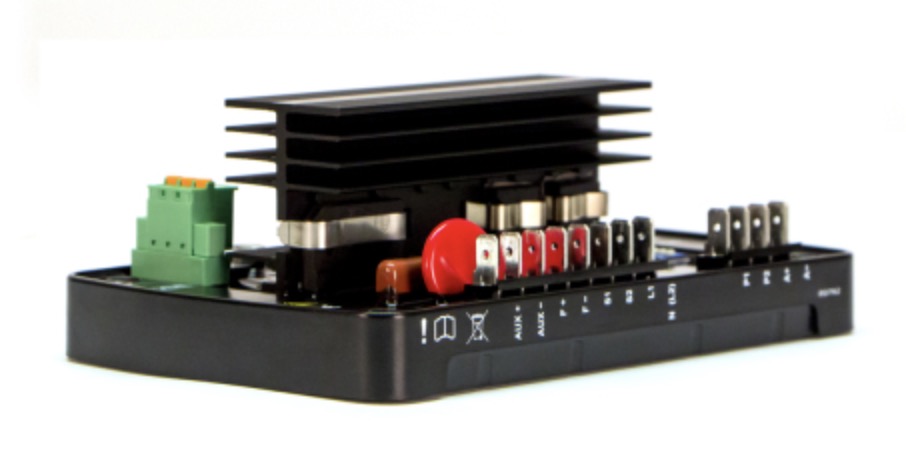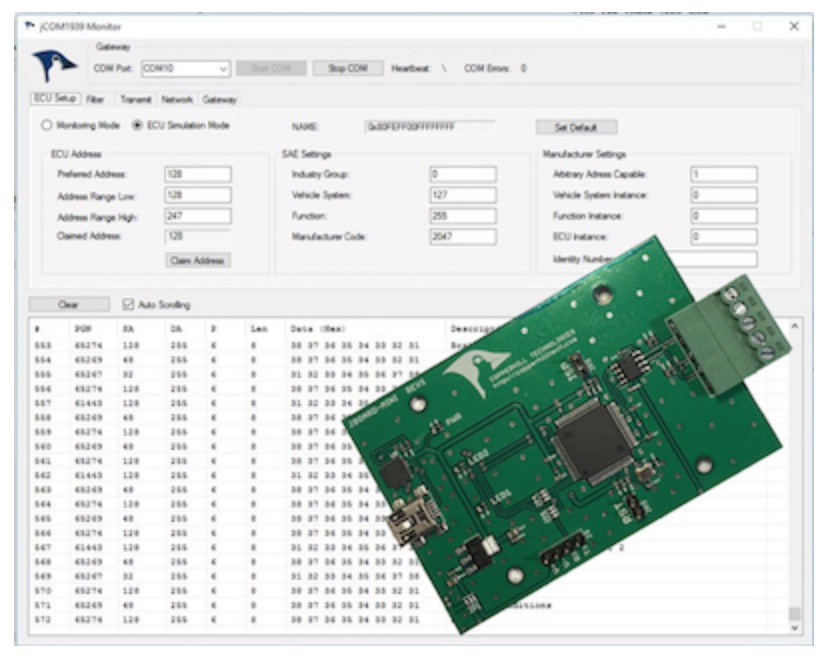Recent Posts
CAN J1939 Digital Automatic Voltage Regulator
Posted by on
Deep Sea Electronics has introduced its DSEA108 digital automatic voltage regulator with an onboard SAE J1939 port that allows the integration with third-party devices.
The DSEA108 regulates the output voltage of an AC alternator that is supplied by a stator auxiliary winding or a shunt system taking power from the output windings. It features higher levels of stability compared to analog designs by sustaining a quiet, firm, and controlled AC output voltage that is untouched by the electrical load.
The power supply ranges from 100 VAC to 300 VAC, and the alternator output sensing is specified for 15 VAC to 600 VAC. Further capabilities include four onboard DIP switches rendering six configurations and two stability ranges. The regulator supports soft start ramping and loss of voltage sensing protection. Other features include over-excitation protection, LED fault indication, and potentiometer adjustment for voltage set points.
SAE J1939 ECU Simulator Board With USB Port
The jCOM.J1939.USB gateway board is a high-performance, low-latency vehicle network adapter for SAE J1939 applications. It allows any host device with a USB COM port to monitor SAE J1939 data traffic and communicate with the SAE J1939 vehicle network.
The board supports the full SAE J1939 protocol according to J1939/81 Network Management (Address Claiming) and J1939/21 Transport Protocol (TP). It is also supported by an extensive programming interface for Windows and Linux/Ubuntu applications, including full C/C++/C# source code for short time-to-market developments.
The strength of the board lies in the fact that the entire SAE J1939 protocol, including all timing requirements, is stored on-chip, thus taking the burden off the main system. The board uses a USB COM port to communicate with the main system, i.e. all data transfer is handled through a standard COM port access.
The communication protocol between the board and the main system is well documented and thus allows a porting to any computer system with a USB connection. Working source code libraries exist for Windows (C# under Visual Studio 2012/2013), Linux and its derivatives (C++ using Code::Blocks), and Raspberry Pi (C using the standard gcc compiler).
 Loading... Please wait...
Loading... Please wait...


